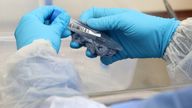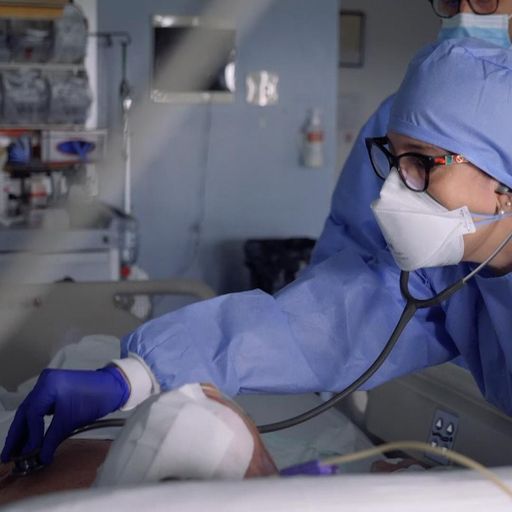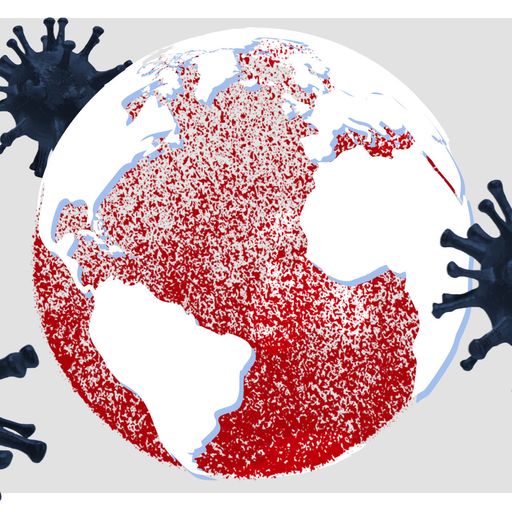Coronavirus: Survivors can suffer damage to almost every major organ
Evidence shows that it is not just the lungs that bear the brunt of the virus, with the kidney, heart and brain also susceptible.
Tuesday 14 July 2020 09:49, UK
Almost 13 million people around the world have so far tested positive for the coronavirus.
Most have recovered. But evidence is growing that even the survivors can suffer long-lasting after-effects.
And it seems almost every major organ can suffer damage.
Not surprisingly the virus has a devastating impact on the lungs.
One in five or six people with COVID-19 are left with scarring - or fibrosis - of delicate tissue that leaves them breathless and coughing months later.
The damage is probably permanent and irreversible, and it's not just those who needed a ventilator who are at risk.
But it's not just the lungs that bear the brunt.
The kidneys can be affected early in the disease.
A third of people in hospital with the virus develop moderate or severe damage to their kidneys, which are vital for cleaning the blood. Some need dialysis and may in the long-term need a transplant.
The heart is also at risk.
A new study by doctors at Edinburgh University of more than 1,200 patients in 69 countries found that 55% of all patients showed heart abnormalities, with 15% suffering serious changes to the way their heart pumped blood.
Even the brain, normally shielded from viruses, is susceptible.
It seems around half those with COVID-19 have some neurological effects.
Symptoms can be mild - headaches, loss of smell and tingling sensations.
But they can be much worse - strokes, seizures and the inability to speak.
:: Listen to the Daily podcast on Apple Podcasts, Google Podcasts, Spotify, Spreaker
So why does the disease have such a broad impact on the body?
It could be because lots of different cell types have the ACE-2 receptor on their surface - it's the doorway into the cell that the virus uses to invade and make copies of itself.
Or it could be the immune system itself. It sometimes goes into overdrive to kill the virus but with catastrophic collateral damage to healthy tissue.
But while the immune system goes into meltdown in some people, in others the traces of the infection quickly begin to wane.
New research by scientists at King's College London found antibody levels fall significantly in the three months after having the virus.
It means immunity to the virus may be short-lived, as it is against the common cold.
It all adds to the mystery of a new and unpredictable virus that scientists are still getting to grips with.
To help answer some of the unknowns British researchers will track 10,000 people who've been discharged from hospital for up to 25 years to see what happens next.
There are bound to be surprises along the way.







